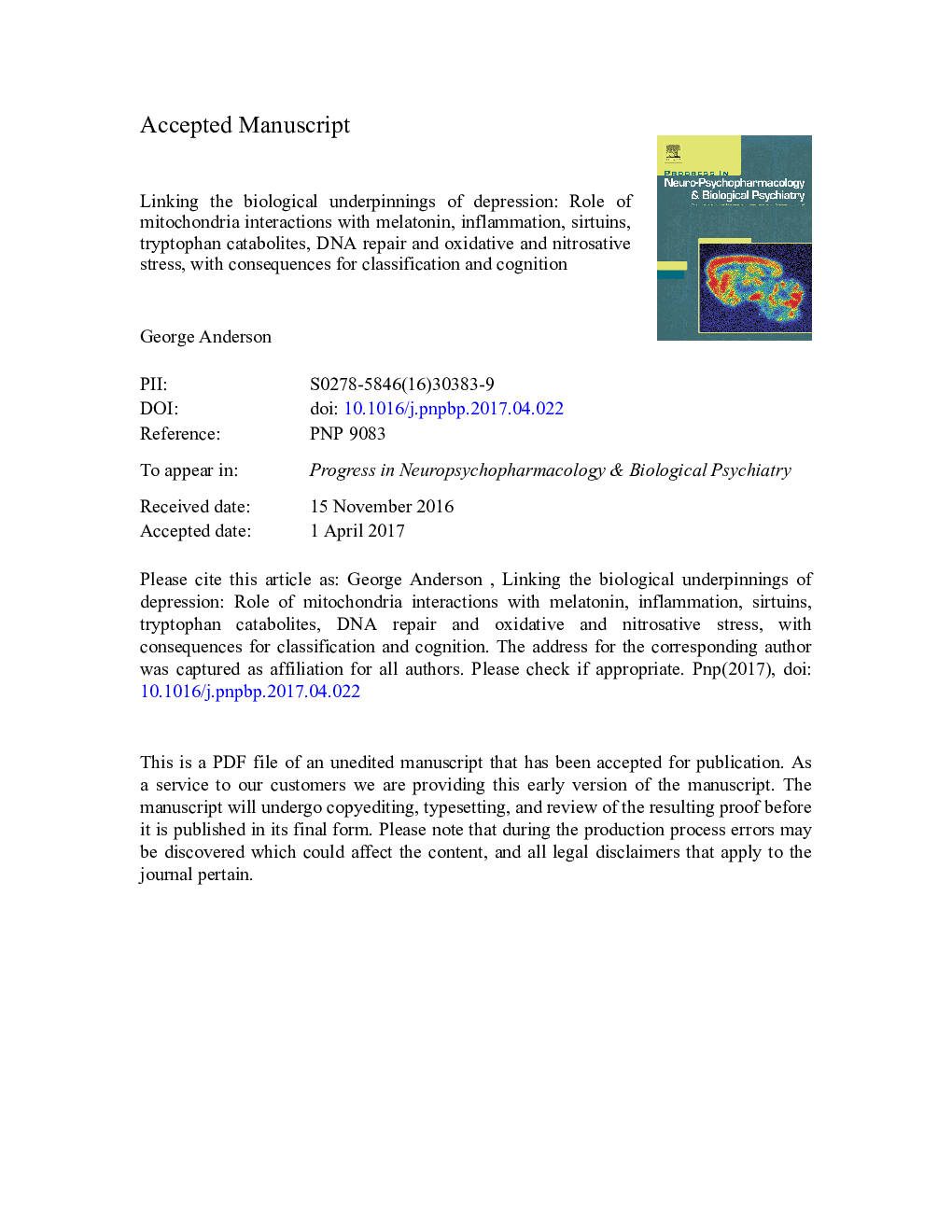| Article ID | Journal | Published Year | Pages | File Type |
|---|---|---|---|---|
| 8537613 | Progress in Neuro-Psychopharmacology and Biological Psychiatry | 2018 | 48 Pages |
Abstract
The pathophysiological underpinnings of neuroprogressive processes in recurrent major depressive disorder (rMDD) are reviewed. A wide array of biochemical processes underlie MDD presentations and their shift to a recurrent, neuroprogressive course, including: increased immune-inflammation, tryptophan catabolites (TRYCATs), mitochondrial dysfunction, aryl hydrocarbonn receptor activation, and oxidative and nitrosative stress (O&NS), as well as decreased sirtuins and melatonergic pathway activity. These biochemical changes may have their roots in central, systemic and/or peripheral sites, including in the gut, as well as in developmental processes, such as prenatal stressors and breastfeeding consequences. Consequently, conceptualizations of MDD have dramatically moved from simple psychological and central biochemical models, such as lowered brain serotonin, to a conceptualization that incorporates whole body processes over a lifespan developmental timescale. However, important hubs are proposed, including the gut-brain axis, and mitochondrial functioning, which may provide achievable common treatment targets despite considerable inter-individual variability in biochemical changes. This provides a more realistic model of the complexity of MDD and the pathophysiological processes that underpin the shift to rMDD and consequent cognitive deficits. Such accumulating data on the pathophysiological processes underpinning MDD highlights the need in psychiatry to shift to a classification system that is based on biochemical processes, rather than subjective phenomenology.
Keywords
O&NSNLRP3T helperTDOMDDTNFaRNSRMDDN-methyl d-aspartateQUINTCDDPGC1aNMDAIDOAHRPARPMDAMMPtryptophan catabolites2,3,7,8-Tetrachlorodibenzo-p-dioxin3-hydroxykynurenineBDNFMitochondrial DNAROSAryl hydrocarbonAlpha 7 nicotinic acetylcholine receptorMajor depressive disorderOxidative and nitrosative stresskynurenic acidQuinolinic acidinterleukinindoleamine 2,3-dioxygenaseTryptophan 2,3-dioxygenasetumor necrosis factor alphaTreatmentmtDNATIMPSODBBBSuperoxide dismutasebody mass indexBMICognitionClassificationAANATBrain-derived neurotrophic factormatrix metalloproteinasemalondialdehydeBlood-brain barrierMelatoninMitochondriaNADNitric oxideNicotinamideHCVHiomtPathophysiologyC-reactive proteinCRPPoly(ADP-ribose) polymeraseSingle nucleotide polymorphismsSNPKATKYNAkynurenineKynurenine aminotransferasereactive nitrogen speciesReactive oxygen speciesaryl hydrocarbon receptor
Related Topics
Life Sciences
Neuroscience
Biological Psychiatry
Authors
George Anderson,
